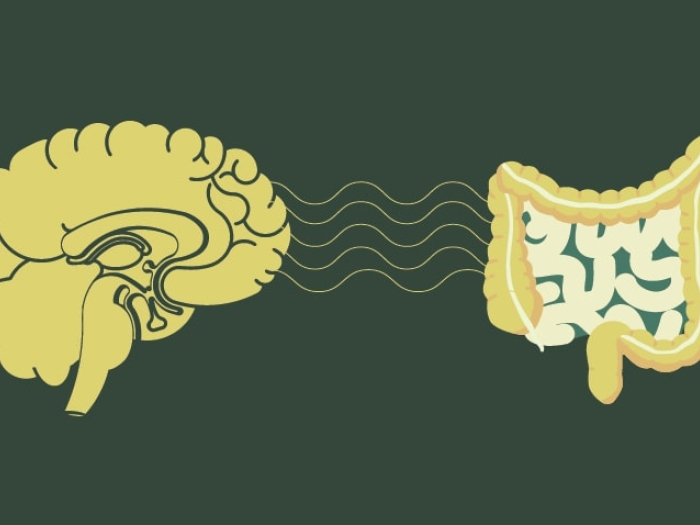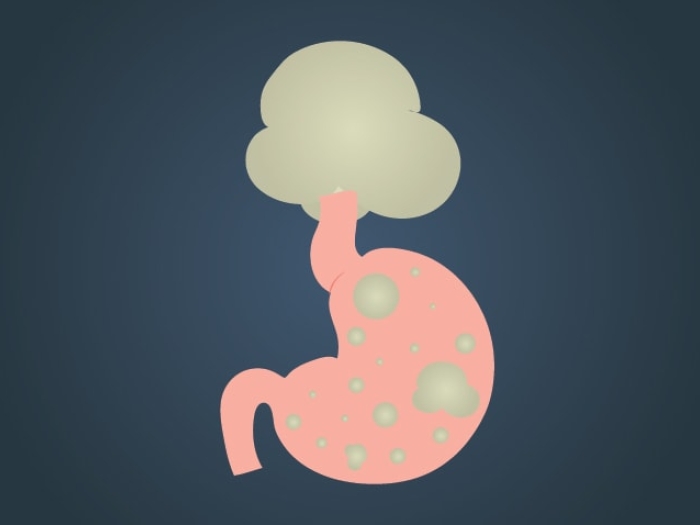IBS can disrupt your life with implications at home and at work. A gastroenterologist explains the condition’s symptoms — and solutions.
7:00 AM
Author |

Sometimes, it's hard to know if your intestinal distress is just a bug — or whether it is irritable bowel syndrome (IBS), a chronic condition marked by stomach pain, cramping and a change in bowel habits.
MORE FROM MICHIGAN: Sign up for our weekly newsletter
Michigan Medicine gastroenterologist William Chey, M.D., knows a telltale sign for the latter: when patients know the location of every bathroom on their commute from home to work.
People with IBS have symptoms such as diarrhea or constipation so often that their normal routines have been disrupted, he says.
"The symptoms themselves, the frequency and the severity of symptoms varies a lot from person to person, so people can have IBS that's a minor inconvenience to completely debilitating," says Chey, also a professor of medicine at the University of Michigan and co-director of the Michigan Bowel Control Program.
"When it gets to the point of impacting their quality of life, they finally come see a gastroenterologist."
IBS is a not life-threatening but has no known cure. It has many causes, Chey says. They include: certain foods, medications, infections, stress and a change in bacteria in the bowels.
The impact of IBS
The influence of irritable bowel syndrome is wide-reaching and expensive.
About 10 to 15 percent of the world's population has IBS, according to the International Foundation for Functional Gastrointestinal Disorders. When direct medical expenses and loss of productivity from missing work are combined, it costs an estimated $21 billion annually.
SEE ALSO: Traveling with IBD: 4 Key Way to Prepare
"It turns out that IBS is one of the leading causes of work absenteeism, second only to the common cold," Chey says.
Canadian research has found that at least one-third of employees with IBS miss an average of one day of work per month due to their symptoms, resulting in a productivity loss 15 to 21 percent higher than those without the condition.
"It's a very important issue both in terms of how commonly it occurs, the impact it has on the patient's quality of life and the economic impact — not only to the health care system but to society in general," Chey says.
IBS treatment options
Therapies vary depending on the severity and the specific symptoms, Chey says.
Among the strategies your doctor might recommend:
-
Change your diet; avoid certain carbohydrates, gluten or lactose.
-
Reduce stress by changing behaviors and incorporating yoga or exercise.
-
Take dietary fiber or supplements if constipation is an issue.
-
Begin over-the-counter and/or prescription medications.
-
Add supplements such as probiotics that modify the bacteria in the bowels.
Patients also are finding comfort in that more people are aware of the disease, one that long has been hidden behind a closed bathroom door. By discussing it in advertisements for probiotics and new IBS medications, pharmaceutical companies are helping to reduce the stigma, Chey says.
"We've seen a big change, and this awareness is helping our patients feel better," he says.
To schedule an appointment for treatment for irritable bowel syndrome or another functional bowel disorder, call Michigan Medicine's gastroenterology division at 888-229-7408.

Explore a variety of health care news & stories by visiting the Health Lab home page for more articles.

Department of Communication at Michigan Medicine
Want top health & research news weekly? Sign up for Health Lab’s newsletters today!





